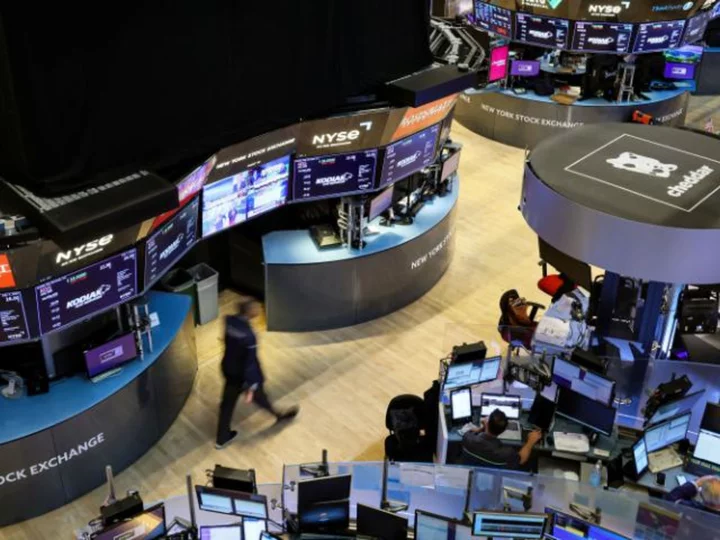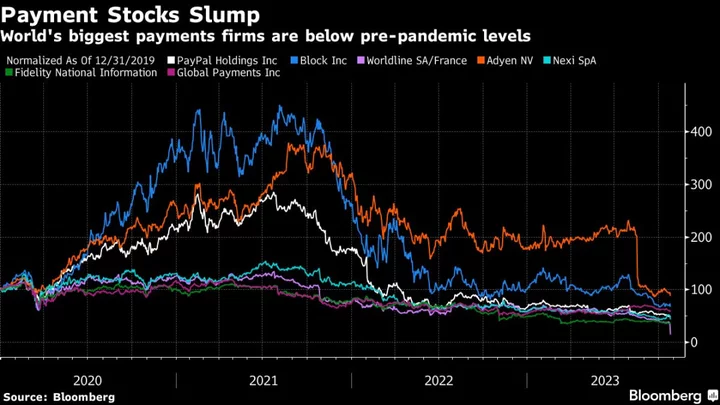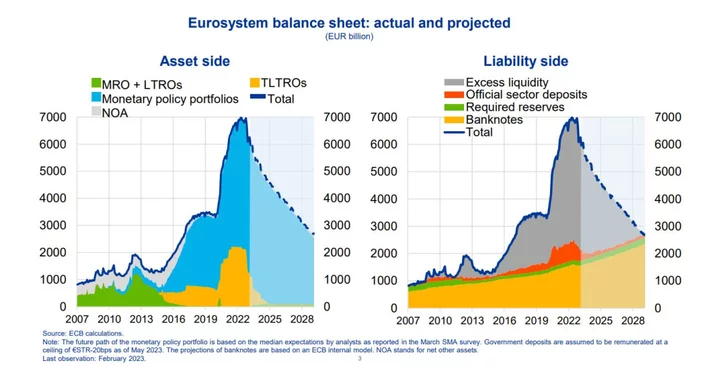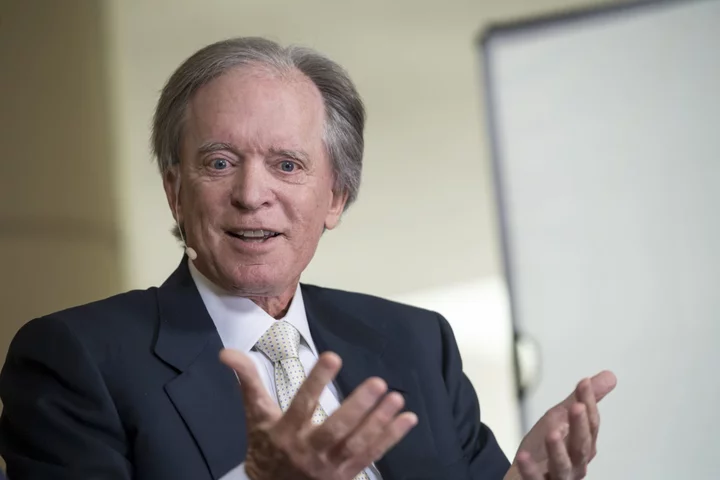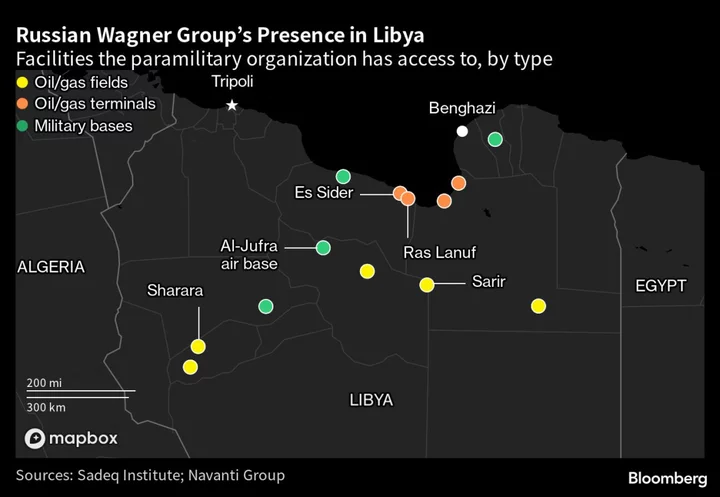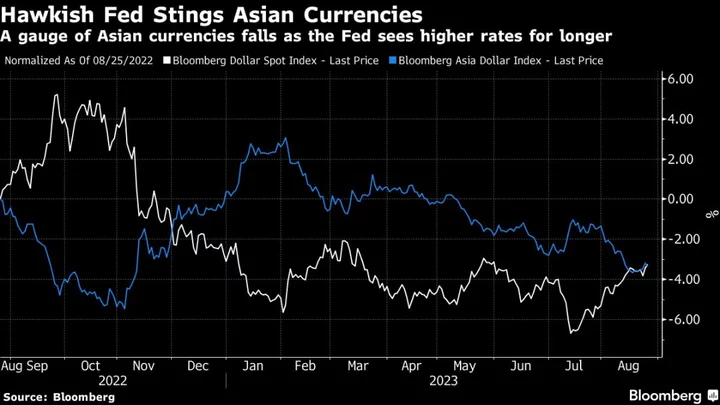Bulls and bears have always engaged in battle on Wall Street.
But both sides are becoming more extreme, and the divide between so-called "bulls" and "bears" — optimistic investors who forecast rising stock prices and pessimistic investors who expect declining stock prices — is growing wider.
In a recent report, Liz Young, head of investment strategy at SoFi, said the chasm almost resembled a political landscape, "where each side looked at the other with anger and resentment, unable to find common ground."
But the divide makes sense when you look at the plethora of conflicting data out there. There's the "unexpectedly feverish stock market rally in the face of leading economic indicators and bond market signals that are clearly waving a red flag," she said.
Before the Bell spoke with Young to discuss.
This interview has been edited for length and clarity.
Before the Bell: Why is there a growing division between bulls and bears?
Liz Young: The levels of investors saying that they're bullish and investors saying that they're bearish aren't necessarily at extremes — but the swing and the reversal that happened in 2023 was very extreme, it's a straight line up for bulls and a straight line down for bears. When you see that fast of a movement and that fast of a tide change, I would expect things to correct a little bit. Usually, things overshoot when people get overly optimistic or overly pessimistic, and then we try to find a settlement on some kind of middle ground.
There are relationships that aren't working as usual out there, and you see divergences — not just the obvious ones we've been talking about, like AI stocks really taking off versus the rest of the market. We see stocks going up as yields go up, that relationship doesn't make a ton of sense. Divergences like that don't last forever, and at some point that divergence has to close.
So are we seeing a lot of market froth, or does this go beyond that?
The narrow leadership of Big Tech in the market has come in a bit, you've seen some broadening out of the rally, which is good. But if you take a basket of AI-related stocks and then compare it to the rest of the S&P 500, the lines are moving in completely opposite directions. The spread between them has grown so big this year. That sort of thing doesn't tend to last forever. We're seeing inflated valuations in tech companies in the face of interest rates being held higher for longer, and in a period where the 10-year Treasury is at a level that suggests these valuations are too expensive. Valuations in general are above their 5-, 10- and 15-year averages. It seems pretty clear that we got ahead of ourselves and there needs to be some steam that comes out of this market.
I think the biggest question and the biggest debate is if and when that's going to happen. If a rally continues, the bulls will say that the bears missed it. If it moves in the other direction, in a swift fashion, then the bears will say that the bulls were overly optimistic. It's just gotten so divisive. It almost feels like politics. Each side looks at the other side with disdain and is so convinced that the other side is completely wrong. We have this inability to find a middle ground.
So are markets diverging from the economic reality right now?
I'm willing to bet that we get to a point in every economic cycle where we have a few rallies that some people don't believe in, and we have this debate where it's like, 'this time is different. Everything has changed.'
I don't think this time is different.
The event that takes us to a different part of the economic cycle might change. And certainly, the makeup of investors has changed, and we're in unprecedented monetary policy times. I agree with that. But to suggest that we're not going to have the same types of phases of an economic cycle as we've had for the last 100 plus years I think is naive. The economy has early, mid and late cycles and then you usually have a recession. That resets it and you start over again. And I don't think we've seen that yet.
Analysts have said a recession is coming for the past two years, but the economy is still resilient. In an earnings call on Friday, JPMorgan Chase CEO Jamie Dimon even said he's fuzzy on the economic outlook. What's your take?
It's coming at some point. I've been wrong on the timing and I'm just as shocked as anybody that we've seen so much upside in the market for the first half of 2023. But I don't envision a possibility of us coming out of these deep yield curve inversions and deeper contractions of leading economic indicators without some type of recession.
As to the timing of it, I have no idea anymore. History would suggest that right now is a pretty trepidatious time and if we're going to have a recession, it's likely it begins in the next three to six months.
Jamie Dimon: "I don't know" if there will be a soft landing, mild recession or hard recession
JPMorgan Chase CEO Jamie Dimon on Friday called out positives in the economy including resilient consumers, but, reports my colleague Matt Egan, he also cautioned of dangers lurking that could still spark a downturn.
In a call with reporters after the bank reported blockbuster second-quarter earnings Friday, Dimon was asked by CNN if the inflation cooldown has made him more optimistic about avoiding a recession.
The head of America's biggest bank acknowledged considerable uncertainty.
"I don't know if it's going to lead to a soft landing, a mild recession or a hard recession," Dimon said during the call.
The JPMorgan Chase CEO cited "tailwinds" in the economy, including the strength of consumer spending amid fiscal and monetary stimulus.
"Those are receding over time," Dimon said.
Headwinds, according to Dimon, include inflation, high US government debt, high interest rates, the Federal Reserve's efforts to shrink its balance sheet and the war in Ukraine. He noted the war has been going on for 500 days and could still "get worse."
Jeremy Barnum, JPMorgan's chief financial officer, similarly expressed uncertainty over whether the Fed can achieve a soft landing for the US economy.
"Your guess is as good as ours," Barnum told reporters, adding that there has been "a lot of euphoria about immaculate disinflation" in recent days but it's too early to say.
The JPMorgan Chase CFO was more confident about the state of the banking crisis, which has eased since the JPMorgan takeover of First Republic in early May.
"It seems like we are through the worst of it," Barnum said.
'There is no Coco Chanel': Lawsuit accuses Shein of copyright infringement
Three graphic designers are suing Chinese fast-fashion giant Shein over what they allege is "egregious" copyright infringement and racketeering, reports my colleague Ellie Stevens.
In the lawsuit, which was filed in a California federal court Tuesday, the designers allege Shein produced and sold exact copies of their designs. They claim Shein uses "secretive algorithms" to determine fashion trends — algorithms they allege "could not work" without generating exact copies of artists' work.
The designers say Shein has grown rich from "committing individual infringements over and over again."
The suit says the fast fashion retailer violated the Racketeer Influenced and Corrupt Organizations Act, or RICO, alleging that these claims are appropriate because Shein is not just one single entity but rather a "de-facto association of entities."
"There is no Coco Chanel or Yves Saint Laurent behind the Shein empire. Rather, there is a mysterious tech genius, Xu Yangtian aka Chris Xu," the suit claims.
A Shein spokesperson said in a statement: "SHEIN takes all claims of infringement seriously, and we take swift action when complaints are raised by valid IP rights holders. We will vigorously defend ourselves against this lawsuit and any claims that are without merit."

